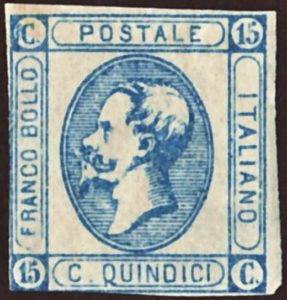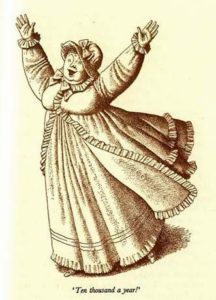
Many changes had come to Longbourn since the day on which Mrs. Bennet had got rid of her two mostdeserving daughters. Once she would have protested that with all her daughters married, she would have nothing else to wish for, but the reality was something different, and Mrs Bennet had perhaps more complaints now than she did in the days when they were all still single.
The trouble began when Jane and Elizabeth moved so far away. Elizabeth began it, by removing to Pemberley, a vastly rich, beautiful estate to be sure, but Mrs. Bennet got no good out of it as she was hardly ever invited there. Jane had been more welcoming, and she was allowed to inspect her eldest daughter’s happiness with Bingley, as they had bought property near Sheffield in Yorkshire. That was only half a day’s drive into Derbyshire, and the Bingleys had been kind enough to drive her over for a glimpse of Pemberley. Another cause of irritation was that Kitty was tolerated better at Pemberley than Lizzy’s own mother, which Mrs. Bennet could hardly understand. In consequence, Kitty had married the clergyman of the parish, so now was almost as good as a member of the Pemberley family, and showed every sign of setting up for a fine lady herself. Mrs. Bennet had no patience to think of it, and the loss of Kitty was nothing to her compared to that of Lydia, whose peripatetic life with Mr. Wickham had long kept her from her sorrowing mother.
By her own reckoning Mrs. Bennet had but one daughter left to her. Mary had finally married, though not very satisfactorily, after some years in which Mrs. Bennet constantly chided her for being an old maid, and reminded her that she must do something about it or starve. After much rumination, she accepted the proposal of one of her Uncle Phillips’ clerks. Mrs. Bennet did not consider it a very good marriage, and even Mr. Bennet was not perfectly convinced of Mary’s happiness, though he said little about it, except to remark that Mr. Thipps was his least favorite son-in-law because he was the one he saw the most. He was considerably older than Mary, and rather a nonentity, a poorly paid drudge as lacking in social abilities as his wife, but in his favor Mrs. Bennet had to concede that he was inexplicably fond of Mary, whose love of books and scholarly pursuits had concerned her mother as a certain to make her even more unattractive to gentlemen. Mr. Thipps seemed to actually admire Mary’s bookishness, and treated her with some reverence, as being cleverer than himself, in addition to coming from a better family. This was enough to satisfy and please Mary, who had never been appreciated by anyone before; and her only regret was that her husband’s humble rooms were too small for her to have a large library of her own. It mattered little however, since as the only available daughter she was necessary to Mrs. Bennet for an array of services, and consequently Mr. and Mrs. Thipps had come to spend more than half their time at Longbourn.
They had no children; but now we come to Mrs. Bennet’s greatest grievance of all, and one that, unusually, Mr. Bennet, who seldom saw eye to eye with his wife, shared with her completely. There were children at Longbourn. Four of them. These were Lydia’s children, whom Lydia had deposited with her parents, before decamping. Where else could they go? Who better to take care of them than their grandparents, and how much help Mary would be, since she was at home and had nothing to do! And it was all Lizzy’s fault, as usual. For she and her husband Mr. Darcy had, of all things, taken it into their heads to travel to the Continent this summer with their children, and as if going abroad to foreign places were not bad enough, to Italy. Mrs. Bennet did not care for all that they were in Venice, where there was water for streets, for Lizzy could hardly care less about her family wherever she was. The last straw was that Lydia had somehow found the wherewithal to follow her; and now she, too, was lost into a faraway land where they did not even speak plain English. They would all be sure to die of fever, and Mr. Bennet should do something about it.
Lydia’s children, as might have been expected, were rambunctious and riotous, untrained and untamed, running about shouting at all hours, until Mrs. Bennet had no recourse but to shut herself into her room and lie down with a succession of lavender sachets over her eyes. It was no more than Mr. Bennet was doing, barring the lavender, and he talked of having a lock put on his study. Mary was left in the sitting room, defenseless against the rampaging children who threw things, spilled food, pulled her hair and tore her dress, shouted in her ear, and were completely unchecked by her soft remonstrances.
Matters were in this state when the children’s attention was distracted by a pony and cart coming down the Meryton road, which stopped at the Longbourn gate. “Aunt Mary! Who is it? Come and see!”
Mary put down her sewing, as she was trying to mend the lace on a ripped cap, and looked out of window. “It is the post boy,” she said. “That is odd. It is not his usual time, and I believe that is the postmaster’s best horse. Perhaps it is a letter come by express. What a pity, Mr. Thipps might have brought it home himself, and that might have spared my father a fee.”

“Georgie, will you please go up and tell Grandmama that the post boy is come?” she asked, and for a wonder the six-year-old eldest child obeyed, only shouting the news at the top of his voice as he ran. A querulous Mrs. Bennet, tying on her own cap, was seen coming down the stairs, inquiring with irritation, “What is the matter now, Mary? Cannot you keep those children quiet?”
But Mary was opening the door to the rider, who held a paper folder with impressive seals emblazoned on it. “If you please, mum, the postmaster sent me out special. This here’s for Mr. Bennet, from foreign parts as it might be. And it it is all paid for, too!”
“Why, what do you mean?” began Mary, while Mrs. Bennet hurried forward. “Give me that,” she said.
“Got to put it in Mr. Bennet’s own hands,” the boy said. “This here is from It’ly!”
“A letter from Lizzy!” exclaimed Mary, while Mrs. Bennet said excitedly, “A letter from Lydia!”
“I had better call my father. No, Georgie, he won’t open the door if you pound on it.”
Mr. Bennet was summoned, and he came out looking concerned. “A post from Italy? It must be from Elizabeth. Give it to me at once.”
He took the paper and turned to take it into his study, for private perusal.
“Oh, Mr. Bennet!” his wife protested. “We want to see what is in it as much as you do. Make haste, and open it here.”
He looked at her. “I will do that, my dear, on one condition. That every one of you is silent.”
“We will be, won’t we?” cried Georgie, and the others looked awed, and did not dispute.
Mr. Bennet methodically opened the seal, and pulled out two sheets of paper, written over with different hands.
“It must be from both the girls,” Mrs. Bennet exclaimed.
“I said you must keep quiet,” her husband remonstrated, “or you will hear nothing at all.” He read, and was silent for a few moments. At last, “Well?” his wife impatiently reminded him. “Is Lydia all right?”
“She seems to be,” he said shortly. “There. Take these. Mary will read them to you. Now please do me the favour of leaving me in peace, all of you.”
He shut his study door, and Mary sank to the sofa, her mother beside her, while the children sat on the floor wide-eyed. “Is Mamma coming home?” little Kitty, the oldest girl, asked.
“I hope she isn’t,” said Georgie, “I like Aunt Mary much better.”
“My dear father, be not alarmed by our lengthening absence from home; we are all full well, and have intended to commence our return journey to England for some time, but we have been delayed by circumstances relating to Lydia. As you know, we have become a magnetic centre for visiting relations, for not only did the Wickhams make their way here, with the fixed scheme of joining our household, but Lady Catherine de Bourgh has also conferred upon us the favour of a visit, purposing to persuade her nephew to return home. Such persuasion was not needed, as he was already decided; and the addition of Lady Catherine to a party that contains Lydia, was hardly convenient. Wickham has gone off, for the second or third time, we do not know exactly where; but Lydia is left unable to travel, due to the expectancy of her child, which should occur before the close of summer. As soon as that event has concluded, you may be very sure we will lose no time in returning home. Mr. Darcy and I are too painfully aware of the burden that has been imposed upon you with the care of Lydia’s family, at your time of life and to your great inconvenience. We do assure you that when we meet again, we shall make arrangements to set up a home for Lydia and her children, quiet and removed, where she will not be tempted to either absconding or expenditure. Until then, I remain as always, your respectful and affectionate daughter.
Elizabeth.”
“Well! That is quite – What do you think about it, Mary? Lydia will be coming home! I do not know why Lizzy is talking about her living someplace removed, I don’t want her any farther off than Meryton.”
“Lizzy does not say if Wickham will be of the party,” observed Mary. “If he has left the army it cannot be known where he will settle.”
“Oh, Mr. Darcy can do something for him, he always does,” scoffed Mrs. Bennet. “But what of the other letter, Mary – is it from Lydia?’
“It seems to be. But it is addressed to you, Mama. How odd that my father should read it himself. It is true that a husband has the right to read his wife’s letters, for he is her master by law, but my father is a modern gentleman who also respects the rules of privacy, which, I believe, are in the process of changing in these times.”
“Oh never mind. I could not care if he read it or not,” said Mrs. Bennet impatiently. “My poor eyes cannot tolerate writing these days, so do you read Lydia’s letter to me, Mary.”
“Very well.” Mary smoothed the paper and began.

“My dear Mamma, I have something so comical to tell you, and you cannot guess what it is. First of all, you will not be surprised to hear that I am expecting again, so many times as you have had this news from me. I do seem to pop them out like rabbits, only much noisier; and this time I am as big as a whole warren of them. Now, what will you say when I tell you that this one will not be a little Wickham! No, I am almost sure – it really seems quite likely, that the father is none other than (you cannot possibly be prepared for this surprise!) Lord Byron himself! Yes! You must have heard of him, he is the most famous poet in the world, and as beautiful as the sun, though a little too fat. I don’t care about that though because he is also very rich and I am going to try to get him to take me to his house in England. It is a very fine place, a regular Abbey, up in Nottinghamshire, and he can well afford to install me there. I’d rather that, than stay in horrid Italy where the mosquitoes are so bad and Wickham keeps going off with opera singers. So far I have not been able to get Byron to listen, but I always get my way, you know, so you can look for me in England as soon as I have recovered from my lying-in. Won’t it be such fun! I hope we can stop at Longbourn on our way north, so I can have a good comfortable gossip with you, just as we used to have, and you can sew up some of my ripped gowns, which have burst at the seams from the largeness of my child. Give my regards to Papa, and I daresay my brats are keeping Mary busy, which is just as well as she has none of her own.
Your loving daughter,
Lydia”
Mary dropped the letter and she and Mrs. Bennet stared at each other.
“So is Mama coming home?” the children demanded again.
“Yes – no – I hardly know,” said Mary. “I think she is, though we may have to wait a little while.”
Mrs. Bennet had been holding her breath and now let it out. “What does this mean, Mary? Lord Byron? But Lydia cannot marry him. She is married already!”
“That would seem to be an impediment, indeed,” nodded Mary. “How can she think he will take her to his Abbey? He seems settled on the Continent, from what one reads.”
“Oh dear, I must see what your father thinks,” said her mother, and tottered to her feet. Supported by Mary, she made her way to Mr. Bennet’s room, and when he did not answer the knock, she pushed open the door. He was writing a letter.
“Mr. Bennet, what do you make of these letters? Do you think Lydia will be coming home?”
He put down his pen. “As nearly as I can make out,” he said in a measured voice, “they all mean to return to England, but I am writing to remind Elizabeth that there is one house in England where Lydia will not be received, and that is this one.”
“Oh, Mr. Bennet, you have still not lost your unkindness toward poor Lydia. It is so strange. When you ought to be proud, for only think, she is having Lord Byron’s child!”
“Or so she thinks. That is no concern of ours. She is more of a disgrace than ever, and likely to make a public scandal of herself if she persists in this delusion that Lord Byron will acknowledge her and her child. No, my only hope is that Darcy and Lizzy will succeed in covering this up, and find Lydia a prison of her own making.”
“A prison! Mr. Bennet, how can you talk so!”
“If you did not force your way into my study, I should not have to talk at all,” he told her. “Now, do me the great favour to leave me in peace.”
Mrs. Bennet turned away, and leaning on Mary said, “I must not be disturbed for the rest of the day, nor tomorrow either, with all I have had to bear and suffer. Help me upstairs, for I can hardly stand, and have Mrs. Hill put me to bed. And keep the children from racketing as best you can. I will not come down to dinner, I can only tolerate some very mild broth, in my room. Make sure it is warm, and well strained. My nerves are completely upset.”
“I will do my best, Mama,” said Mary patiently.

Diana Birchall as Mrs. Bennet

12 comments
Skip to comment form
Dear Diana,
I still hope against hope that someone – make it Byron in a fit of madness as surely to him — such rich and bright, brightest than the sun, eccentric gentleman poet — everything will be eventually pardoned ! – wring Lydia’s neck!!!!
And maybe Mrs B could just be struck mute upon hearing the news afterwards ?
Can you tell what murderous thoughts you make me entertain?!
Me! 😇
Just love this story, as always, Diana! 💜
Oh yes, I’m totally with Mihaela on this! I’m certain that Byron will find some way of dealing with Lydia (even if it’s just ignoring her as he seems to be doing at the moment!)
I’d definitely go with installing her and her ‘well behaved’😱 children in a very remote Scottish cottage with no help (well maybe a very strict governess to make sure her children don’t grow up like her!) apart from keeping house she can then mend her own (or Elizabeth’s) gowns! Grrrrr! She definitely needs a hard lesson!
How long until the next instalment Diana? 🥰🥰🥰
Diana, I think you have a typo there. It should surely be “There were children at Longbourn”, not “at Pemberley”. Glynis, what has Scotland done to you? Though it is beguiling to imagine a local Church of Scotland Minister of the most rigid kind finding out that Lydia’s baby is the fruit of adultery and having her marched to the stool of repentance in the body of the kirk to be “sharply rebukit” for her sins. Not that it would do any good, since Lydia has no sense of shame and would quite enjoy the fact that everyone was looking at her.
Sorry Kathleen! I just thought it would be harder for Lydia to get anywhere else from there! I’m talking really, really remote here, no neighbours for her to attempt to ‘borrow’ money!
To be honest my daughter took me to Scotland once and it was absolutely beautiful🥰. However I doubt Lydia would find it so in a cottage, in the middle of a field, surrounded by forests? Just a thought! 🤔😳
Bwah ha ha! The further north you get the less trees there are. Maybe the Orkney Islands, which are really Scandinavian – Scotland acquired them in lieu of cash for the dowry of a long-gone Queen consort. But Lydia could be in the middle of the central belt, the heaviest populated part of Scotland, probably in a village rather than one of the cities, and still her chances of finding anyone who would “lend” money to an English hoor (here quoting the rigid Minister) would be less than zero. Scottish people are very generous, but also very good at judging who is a worthy recipient and who isn’t.
Lydia being Lydia is hard enough to deal with when Mrs. Bennet is so pleased with Lydia’s outrageous behavior. I think Lydia’s children at Longbourn need a strong guiding hand and are unlikely to get it even though George says he likes Mary better than his mother.
What a lively and interesting snippet– loved this post.
Author
Gayle, I’m so pleased you enjoyed it! I thought it was about time to bring the scene back to the poor Bennets to see their reactions, and it was nice to be back on “home turf” for an episode.
Diana, please tell me this is chapter one of a WIP to be completed and published? I love the beginning and wonder what will not only become of Lydia, but of her children as well. Wickham is alive and well and virile so we can expect more of him if the story continues. She definitely needs to be “banished” to some far-flung place and I agree, a strict governess or companion would do her – and her children – a lot of good.
Author
Linda, this is actually something like episode 15 or so of my continuing story The Darcys in Venice! It’s all there on the Austen Variations website under my name – Lydia’s dalliance with Lord Byron and all. I thought it was time to get the Bennets’ reaction to it all, and doing that did make it seem like an entirely new story.
Diana, I agree with Linda C. that this should/could be a book! Very entertaining! Need more!🙂❣️
Author
Hi Sandra, well, as I say, there’s probably 15 or 16 episodes already (I’ve lost count) and if I keep going, it’ll get to be a book, all right!
I can see why you recently received a review comparing you to Austen: you have captured her tone perfectly here! Your Mrs. Bennet is perfection (as a character, not as a person!), and I have great admiration for Mary after reading this scene. Also, I love the photo of you as Mrs. Bennet! Thanks for sharing your talent with us, Diana!